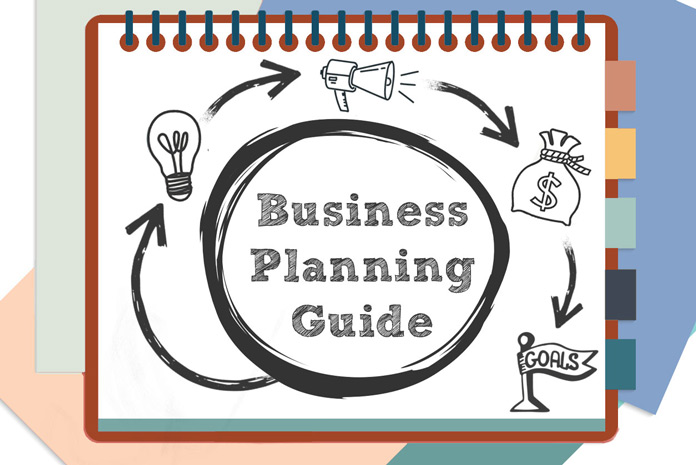The Business Planning Guide
Launching your career as an entrepreneur is serious and exciting business. Planning your business is an important step and necessary to:
- Reduce the risk of business failure
- Acquire business loans or investments
This guide simplifies the planning process and provides access to free tools to get you started.

Plan Your Business
This exercise will help evaluate your business idea so that you can create a strong business plan and enhance your potential for success. To help make your dream business a reality, we have simplified business planning into a four-part exercise.
Find Your Points of Leverage
Every business has natural points of leverage; it’s what makes it a viable business idea in the first place. For example, this could be buying products in bulk cheaply and selling them for a higher price, or it could be providing convenience and a quality customer experience, such as in a restaurant or coffee shop.
By the time you finish your planning process, you should understand what your business’s natural points of leverage are.
There are also competitive points of leverage that set your business apart from the competition. These could be an innovative product, a special skill set, a partnership, a new market insight, or anything else that will help you establish a competitive foothold in your industry and scale up your business.
Develop a Marketing Strategy
Now that you know the basics of your business idea, you need to answer three important questions:
- Who are the people that need your product or service? In other words, what is your target market?
- How will you reach your target market?
- What will be the costs of bringing your business to your target market?
This is an important and often overlooked aspect of vetting a business idea. Without a strong strategy for connecting your business with prospective customers, you won’t be able to make enough sales to break even and turn a profit.
Know Your Financial Model
Every business needs to be able to sustain itself financially. A basic financial model is:
Revenue – Costs = Profit/Loss
First, you need to know your business’s costs. Those costs can be fixed (such as rent, equipment, etc.) and variable (supplies, staffing costs, etc).
Once you know your costs, you will know how much revenue you need to earn to break even and turn a profit.
Knowing your financial model and your break-even point will help you to determine if your business idea is actually worth pursuing.
Identify Your Personal Goals
The last step in evaluating your business idea is to identify your personal goals and values. What kind of life would you like to have five or ten years from now?
Once you know what you want to achieve in your personal life, you can determine whether or not your business idea will actually further your personal growth and development.
Starting a business is a challenging and potentially rewarding experience. The best way to guarantee success is to make sure that there is a strong correspondence between your business and professional ambitions and your ideal lifestyle.
Use these free tools to get started with the planning process:
There are also paid options available for business planning. We recommend Upmetrics for its AI-powered features and intuitive interface. You can find a more comprehensive review of popular business planning tools to compare your options.
Business Plan Template
TRUiC’s Business Plan Generator Tool walks you through the process of creating your own business plan according to our preset template.
You can fill out the sections in any order you want. You can also save your progress and come back later to finish where you left off.
Business Model Canvas
TRUiC’s Business Model Canvas Creator is a simple tool based on the original design by Alexander Osterwalder.
Sketch out the big picture of your business idea to get a better vision of how successful it can be, and then download your work as an easy-to-read PDF.
You can also save your work and then return later on to finish your initial draft.